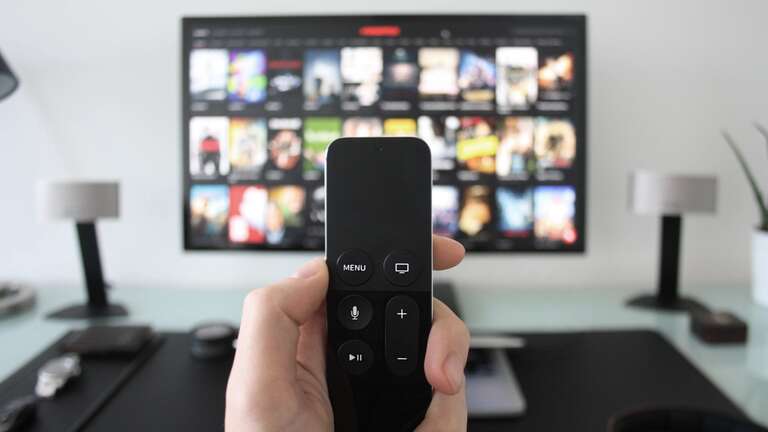
A dozen Hollywood insiders sat down with entertainment blog Vulture this week to give their view on who they think is “winning” the streaming wars.
Not surprisingly, Netflix came out at or near the top of the heap by each of the insiders, and with more than 207 million paid subscribers worldwide, during the first quarter of 2021, they truly are the company that rules the streaming roost.
The comments, however, were a bit more visceral.
“I think there’s a backlash against Netflix. I love the people there. But they don’t make a lot of great deals,” one agent said. “I don’t know why you wouldn’t want shows to last longer than three seasons.”
Outside of Netflix at number one, the bigger battle came for the other slots on the list.
Disney+ landed in the number two spot.
The insiders had lots of great things to say about Disney, pointing in particular to their success with recent content from Star Wars and Marvel.
“Bet against Star Wars and Marvel at your own risk,” a PR executive said. “They were really smart not to go the Netflix way of (releasing) all episodes at once. They dominate the conversation weekly with their hit shows.”
Disney+
Disney+ is a video streaming service with over 13,000 series and films from Disney, Pixar, Marvel, Star Wars, National Geographic, The Muppets, and more. It is available in 61 countries and 21 languages. It is notable for its popular original series like “The Mandalorian,” “Ms. Marvel,” “Loki,” “Obi-Wan Kenobi,” and “Andor.”
An agent echoed the praise.
“The most important streamer now, and in the future,” the agent said. “For me, it’s about the success rate of their shows and how quickly they ascended.”
HBO Max landed in the third-place spot. They were a little bit slower out of the gate — with carriage problems on Roku and Amazon Fire TV early on. But once those issues were solved, HBO Max reached its stride.
“(The) HBO brand is still hugely important to talent - see ‘Mare of Easttown’,” one agent said. “HBO Max has done a good job with ‘Flight Attendant’ and ‘Hacks’ finding a niche.”
A Wall Street analyst agreed.
Max
Max is a subscription video streaming service that gives access to the full HBO library, along with exclusive Max Originals. There are hubs for content from TLC, HGTV, Food Network, Discovery, TCM, Cartoon Network, Travel Channel, ID, and more. Watch hit series like “The Last of Us,” “House of the Dragon,” “Succession,” “Curb Your Enthusiasm,” and more. Thanks to the B/R Sports add-on, users can watch NBA, MLB, NHL, March Madness, and NASCAR events.
“This service is really underrated. Just always great talent, the best library, and more to come,” the analyst said.
Amazon Prime Video landed in the middle of the pack at number four.
Amazon’s direction with sports — in particular with the NFL — has allowed it to make other moves that other streamers have not desired, or been willing to make. By paying about $1 billion for the rights to Thursday Night Football, Amazon arguably has placed itself into a different league, so to speak, when it comes to competing with other streamers and acquisition of programming.
A producer pointed out that in addition, their marketing efforts are not to be ignored.
“Their marketing reach is extremely valuable, and the execs are well-liked,” the producer said.
An agent compared them to a sleeping giant. “It’s like a sleeping giant that hasn’t spent money,” the agent said, in reference to Amazon’s movie and television efforts.
Apple TV+ landed at number five on the list.
They have had a lot of criticism, mostly tied to the combination of deep pockets and comparatively shallow programming slate. The insiders that Vulture spoke to were mixed in their analysis.
“They’re great programmers,” a PR veteran said. “Unfortunately, it took longer than it should have for them to get up and running, so I feel they missed a window of opportunity that Amazon jumped through first.”
Apple TV+
Apple TV+ is a subscription video streaming service for $9.99 a month that includes high-quality original shows and movies including Best Picture winner “CODA,” popular sitcom “Ted Lasso,” and dramas like “The Morning Show” and “Severance.” Apple TV+ is also home to MLB baseball games on Friday nights and MLS Season Pass.
A studio executive was more optimistic.
“The arrow’s going up,” the exec said. “I was dubious, but they’ve done a good job.”
At number six, Hulu received a lot of criticism.
Disney is in the midst of an ongoing legal battle with Comcast over the fate of Hulu. As it stands now, Comcast owns a minority stake in Hulu through 2024.
Many analysts in the United States have suggested that Hulu may be a streamer that should just be rolled into Disney+ — much as Star exists as a portal inside of Disney+ in some overseas markets.
This was echoed by a Wall Street analyst: “Time will remember it only as a near-first mover that spent a decade without sufficient funding and was ultimately eclipsed by a much better product: the Star tab within Disney.”
Speaking of Comcast, their streaming service, Peacock, landed in last place at seventh.
They were derided by several of the insiders for programming and marketing efforts.
“Someone lend these people some money so at least they pretend to be contenders,” one PR veteran said.
Peacock
Peacock is a subscription video streaming service from NBCUniversal that includes original shows, blockbuster movies, and classic television series. Peacock is home to “Yellowstone,” and “The Office,” as well as original hits like “Poker Face” and “Bel-Air.” You can also watch live sports including NFL, MLB, WWE, Olympics, Premier League, NASCAR, French Open, College Football and Basketball, and PGA Tour. Premium Plus subscribers can stream their local NBC feed in all 210 markets.
“You’ve got some amazing IP to exploit, and your international offerings are more appealing than Netflix, but you’re a mess,” said a reality producer. “Selling to them is equally as irritating because there are just a handful of gatekeepers who are deciding if your pitch belongs at NBC broadcast or the 15,000 other NBCU outlets.”
The biggest question when it comes to Peacock for producers — and the general public — is whether the streaming content from the upcoming Tokyo and Beijing Summer and Winter Olympic Games will be enough to bring in viewers, and make them stick around.




